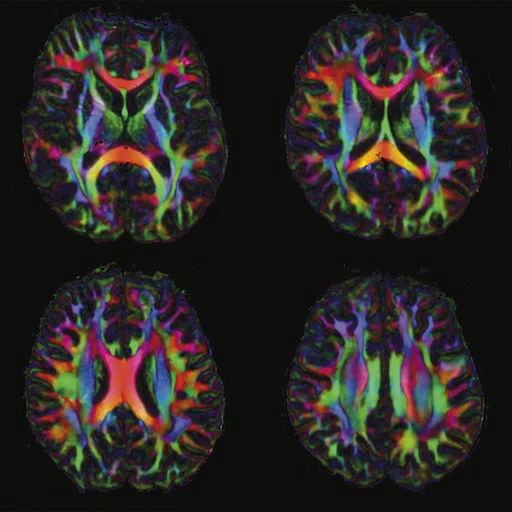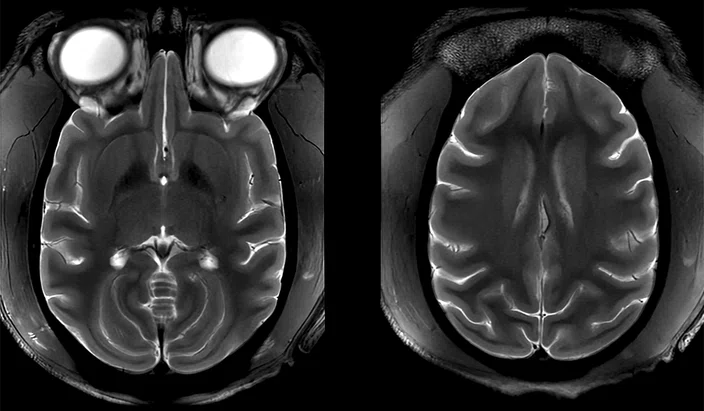Figure 1.
Human brain, colored FA map from 1.5 mm isovoxel DTI.
Figure 2.
Macaque monkey brain, T2 FSE with AIR™ Recon DL, FOV 10 cm with 1024 matrix, 1 mm slice thickness.
result


PREVIOUS
${prev-page}
NEXT
${next-page}
Subscribe Now
Manage Subscription
FOLLOW US
Contact Us • Cookie Preferences • Privacy Policy • California Privacy PolicyDo Not Sell or Share My Personal Information • Terms & Conditions • Security
© 2024 GE HealthCare. GE is a trademark of General Electric Company. Used under trademark license.
NEWS
RIKEN to further explore the mysteries of the mind with ultra-high-field MR
RIKEN to further explore the mysteries of the mind with ultra-high-field MR
The RIKEN Center for Brain Science (CBS) in Wako, Saitama, Japan, recently installed a SIGNA™ 7.0T MR system to further explore the mechanisms of the brain, from cells to organisms and social systems. Established in 2018, RIKEN CBS is the core center for brain science research in Japan and recognized globally as a leading neuroscience institute.
Research activities are centered around four guiding principles: understanding what makes us uniquely human by revealing the high-level cognitive functions of the human brain; harnessing the universal biological principles of life by conducting research at all levels, with the aim to understand the principles of brain functions and brain-body interactions; collecting and applying big data to deliver data-driven research led by theoretical and technical advances; and tackling global challenges by developing diagnostic and therapeutic methods for neuropsychiatric disorders.
With its new SIGNA™ 7.0T MR, RIKEN CBS aims to reveal the high-level cognitive functions of the human brain, including neurophysiology, by utilizing fMRI in both humans and primates to finely visualize brain activities. The SIGNA™ 7.0T will complement two 9.4T preclinical (small animal) MR systems and a 3.0T MR.
RIKEN CBS chose the SIGNA™ 7.0T system because of its open and flexible research platform, the Linux-based open-source environment and the ability to utilize GE HealthCare’s Environment for Pulse Programming in C (EPIC) and Orchestra Software Development Kits (SDK).
“The ability to modify pulse sequences is a great advantage for our neuroscience research,” says Kenichi Ueno, PhD, technical scientist, RIKEN CBS. “In addition to the higher SNR with the SIGNA 7.0T, we expect to obtain higher spatial/temporal resolution for our fMRI studies, which is essential to further advance our latest neurophysiological research. The benefit of both the ultra-high-field and the performance of this particular system will deliver new capabilities that will allow us to continue unlocking the mysteries of the brain, one of the ultimate frontiers in natural science.”
The Brain Mapping by Integrated Neurotechnologies for Disease Studies (Brain/MINDS) is one of the significant research projects that RIKEN CBS is currently engaged in. The project aims to map the structure and function of neuronal circuits to understand the complexity of the human brain and also incorporates the common marmoset (Callithrix jacchus), a unique non-human primate animal.
Adds Ryoichiro Kageyama, MD, PhD, Director, RIKEN CBS, “Through such research and development, we aim to meet the expectations of society and make further contributions to the elucidation of the full range of brain function networks and the overcoming of neuropsychiatric disorders.”










